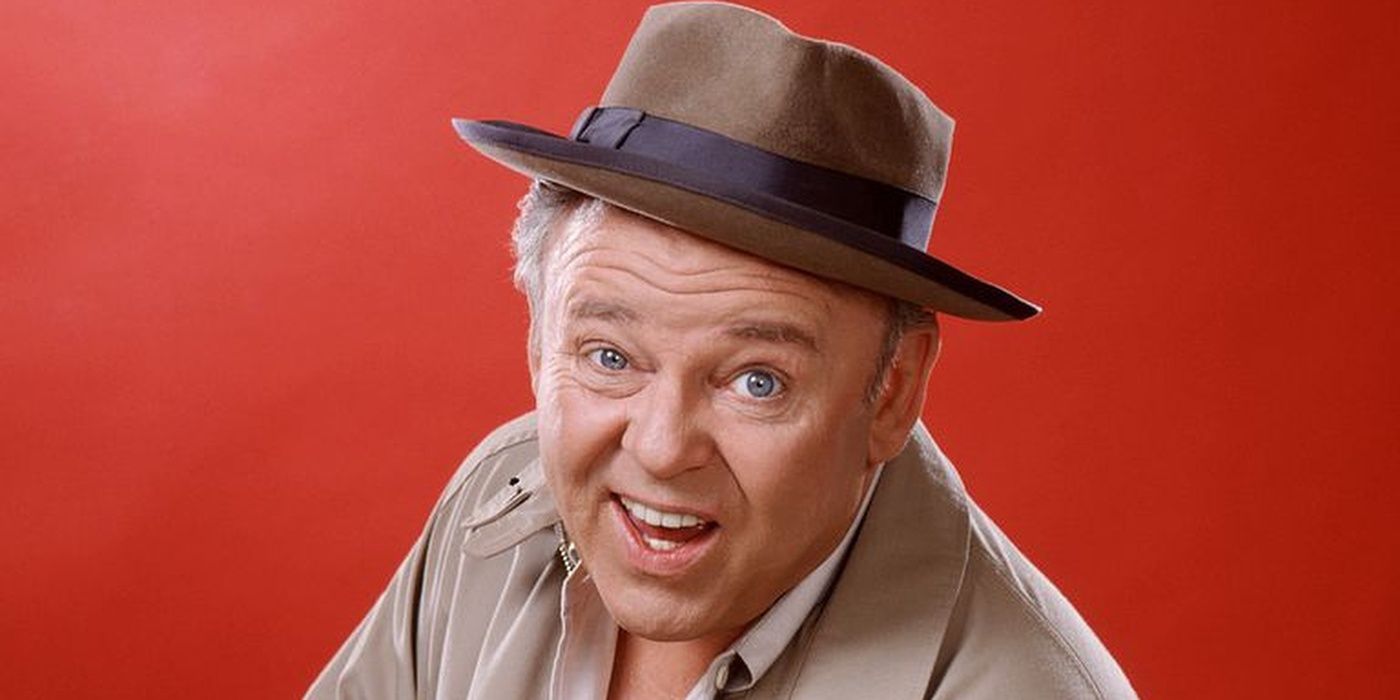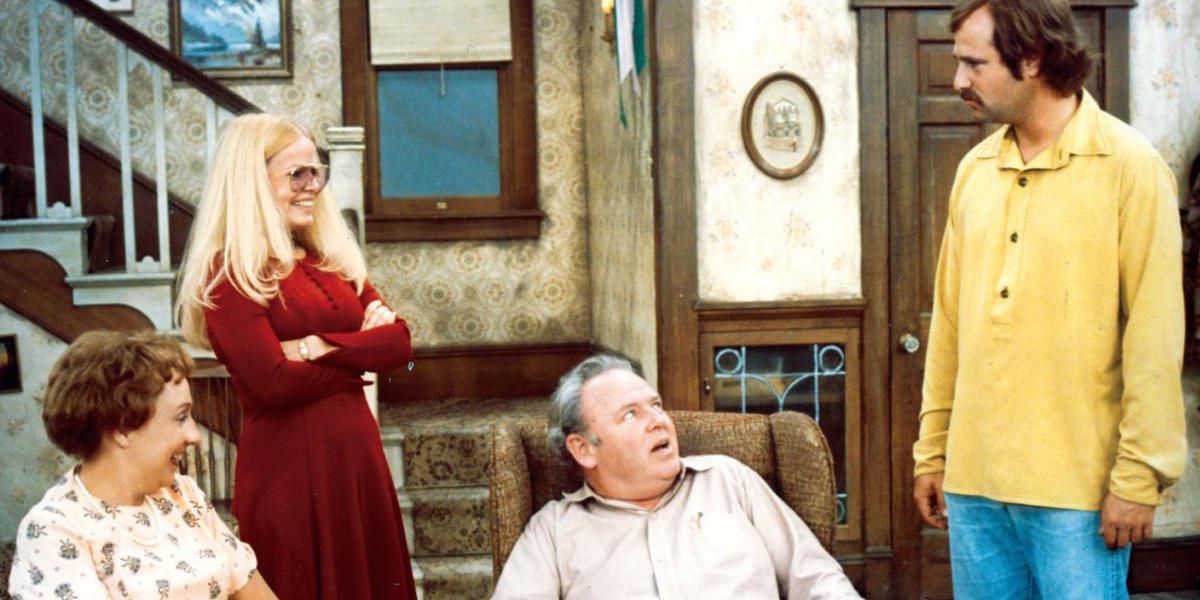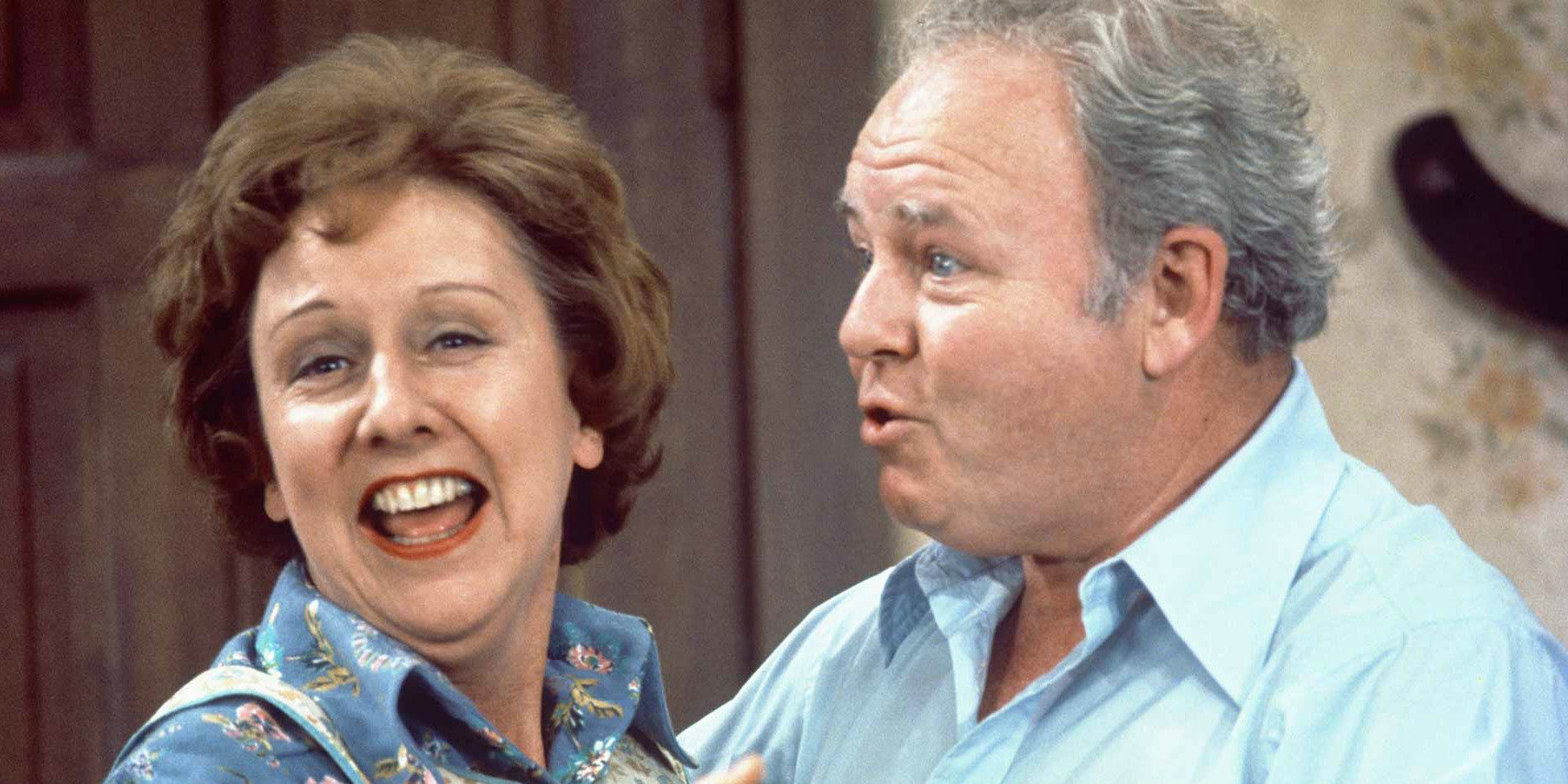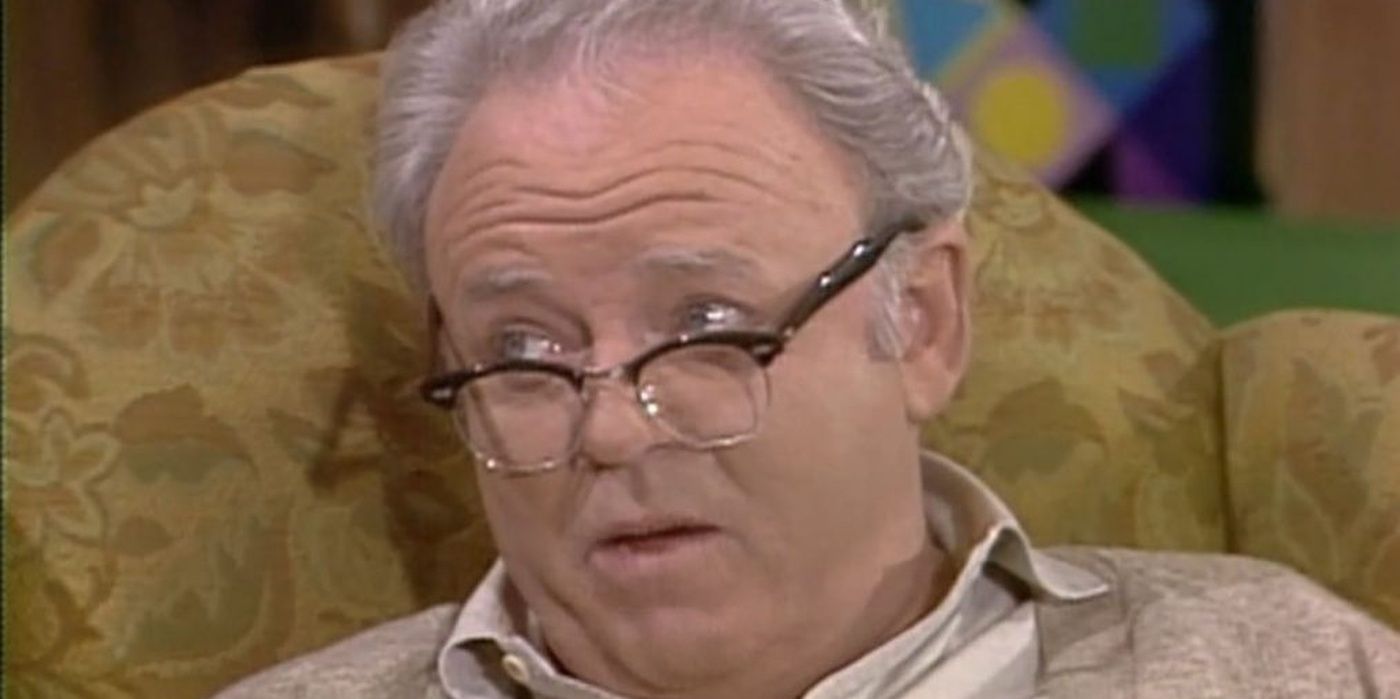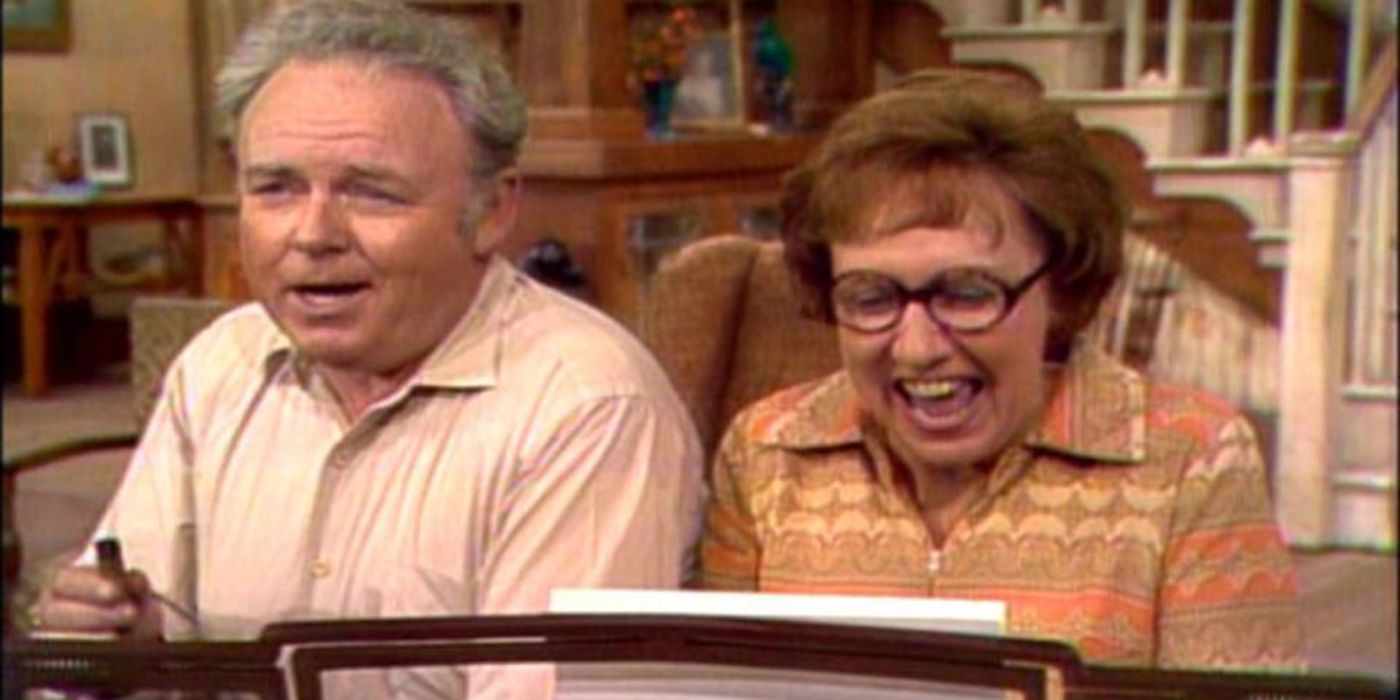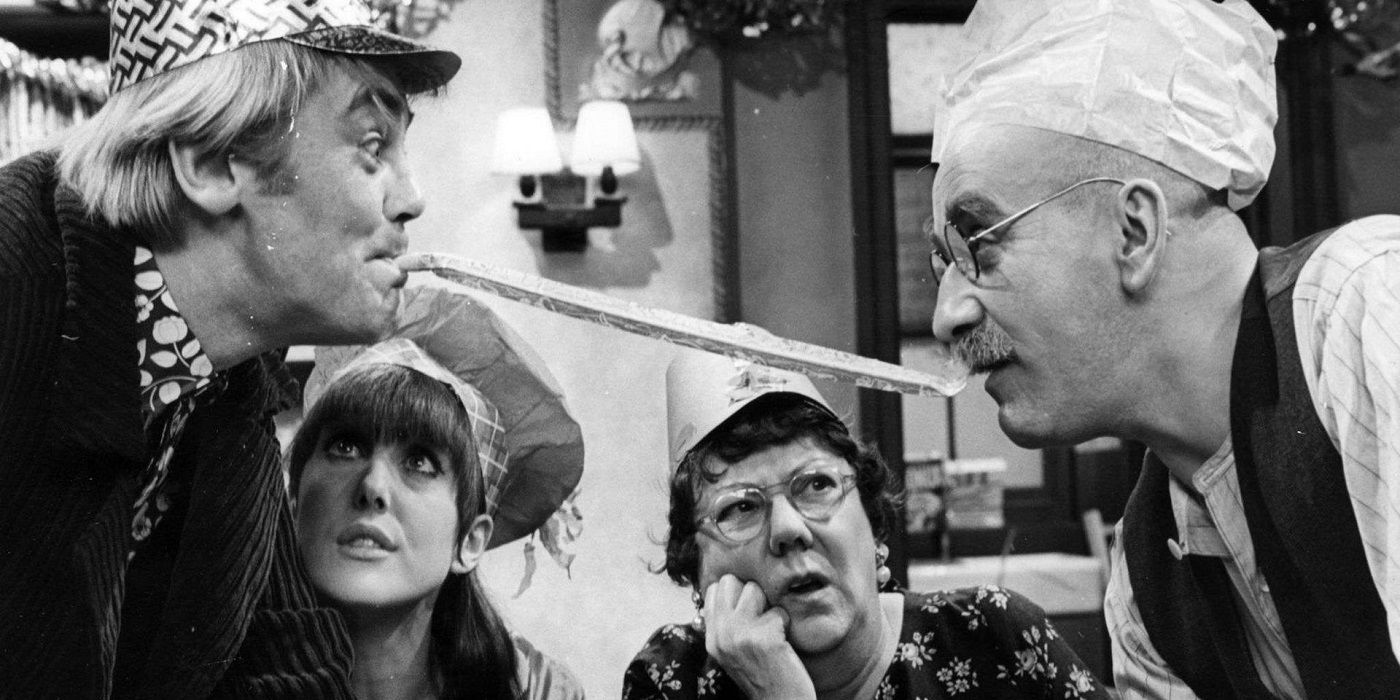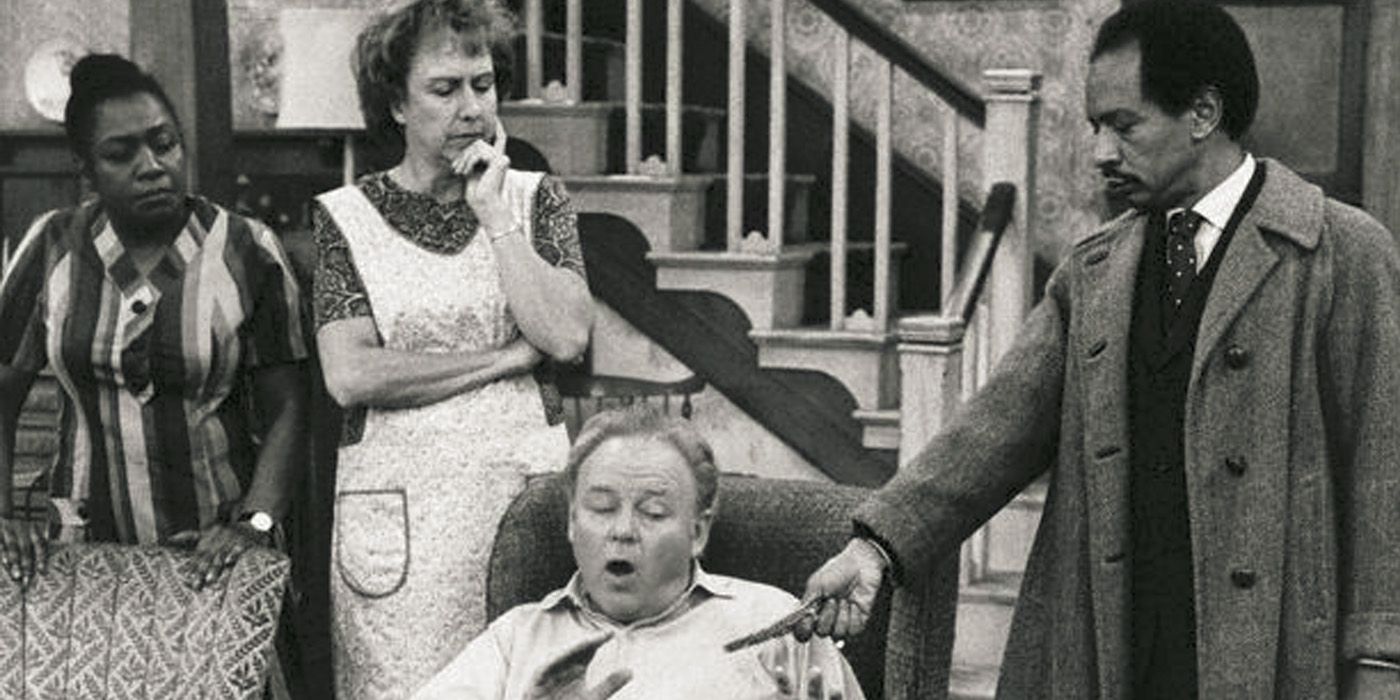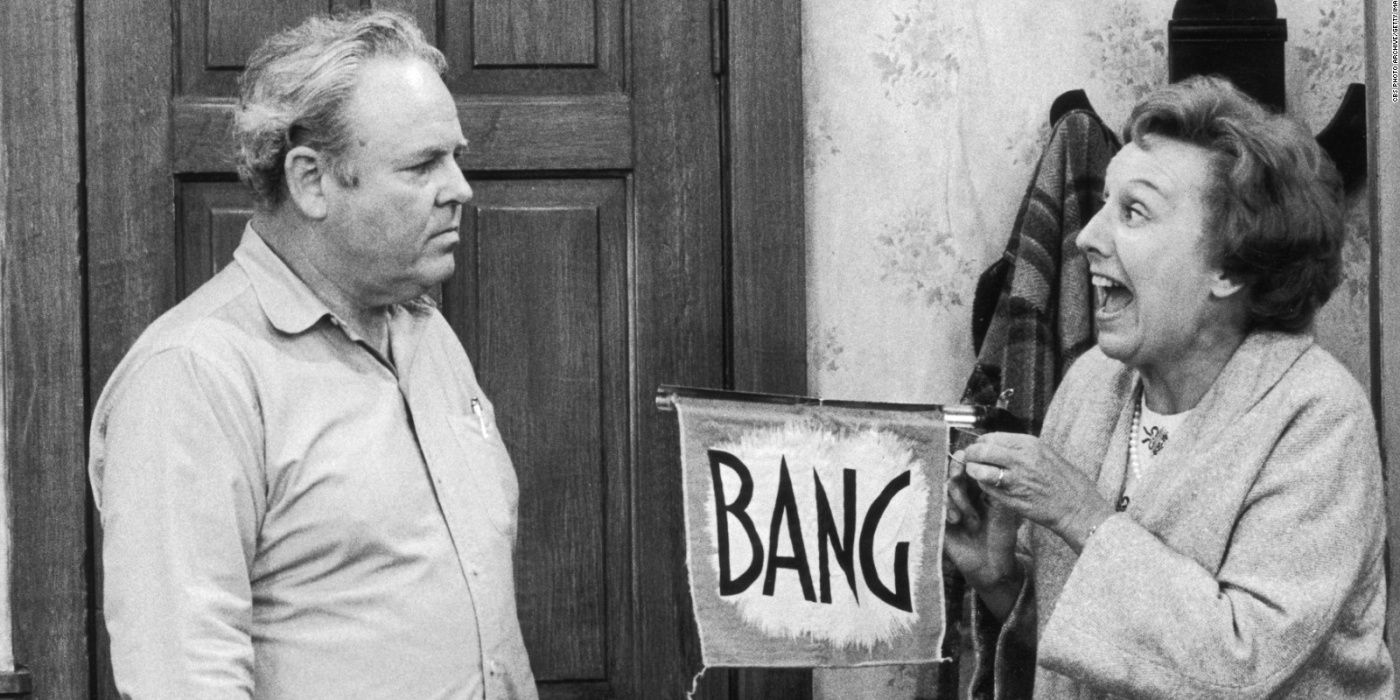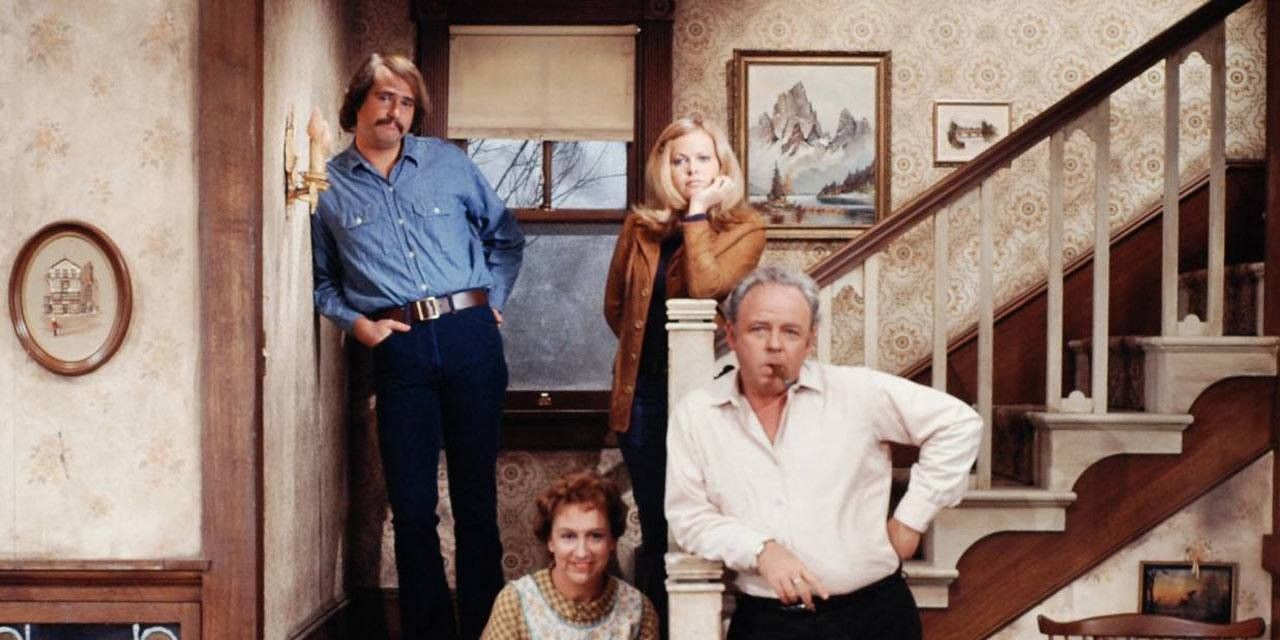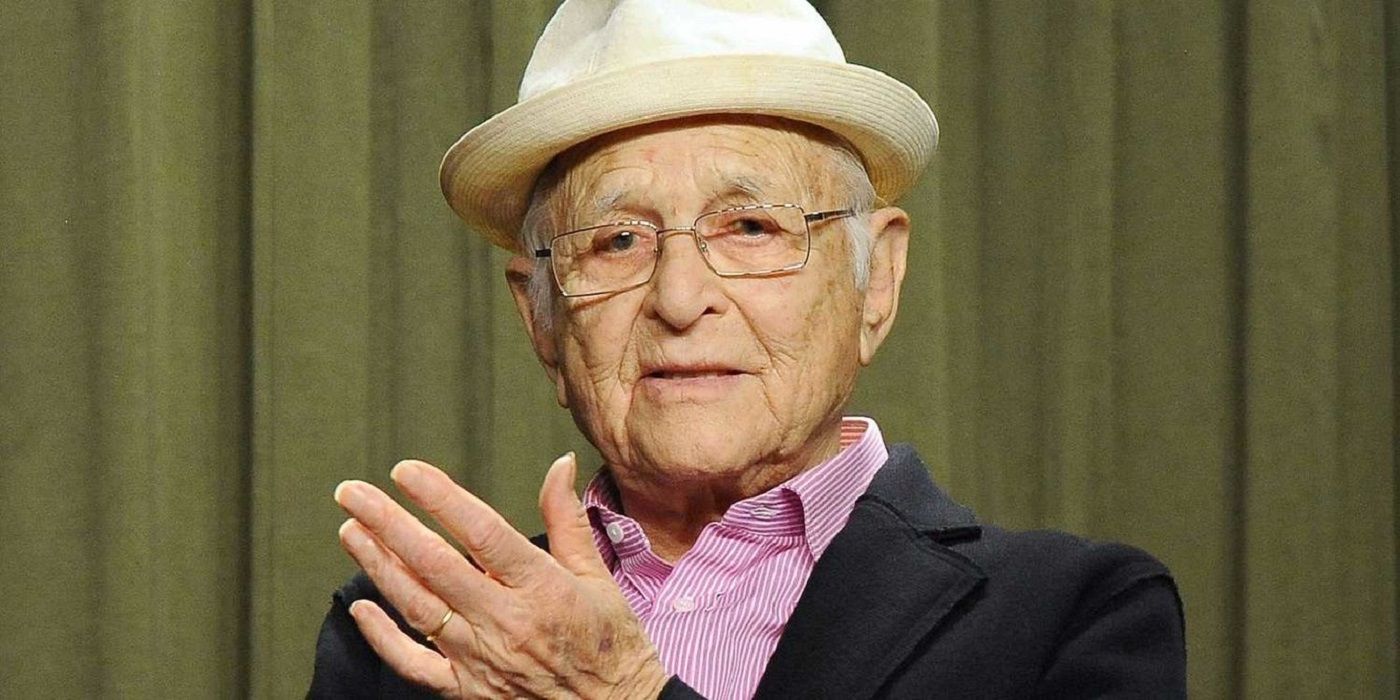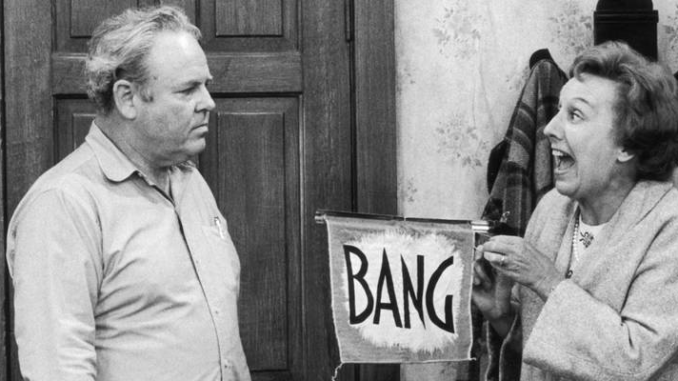
Norman Lear’s All in the Family stands as one of televisions greatest and most important sitcoms. Instead of being an all out slapstick comedy or a wholesome family values show, it decided to use the medium to discuss various societal issues such as racism, sexuality, and war. That’s not to say it wasn’t comical, however. Even its more dramatic episodes include moments of levity funnier than other sitcoms of the era. As a celebration of this wonderful and influential television series, the following entries will present ten lesser known facts surrounding the show’s production and cast. Without All in the Family and Norman Lear, half-hour comedies would be an entirely different beast than it is today.
Archie Bunker
Archie Bunker, portrayed by Carrol O’Connor, starts the series with some undeniably bigoted views on society and different ethnicities. His outlook soften considerably during the show’s nine year run (twelve, if the spin-off continuation Archie Bunker’s Place is included), but he remained a man with questionable thoughts throughout.
Lear revealed that Archie was based primarily off his own father, Herman. Archie’s arguably cruel treatment of his loving wife was also taken on the way his father treated his mother.
Canned Laughter Was Never Used
Many shows of the era featured artificial laugh tracks to let the audience know when to similarly react. Many producers hated this idea, but the practice of filming in front of a live audience was so common that a single-camera show not filmed in front of an audience would feel out of place without one. All in the Family filmed in front of an audience and used their laughter for the broadcast. When the format was changed to Archie Bunker’sPlace and they shot the episodes without an audience, they continued to screen the episode to a group for genuine laughs. Another popular ’70s show not offered such a luxury was M*A*S*H.
Two Pilots
It’s not uncommon for shows to get another pilot, changing things based off audience reactions and network suggestions. All In The Family’s first pilot in 1968 was under the title Justice For All. It featured two different actors as Mike and Gloria and Archie’s last name was Justice instead of Bunker.
A second pilot under the title Those Were the Days was also filmed in 1969. During this time, ABC was the network interested in the show, but then became hesitant to air something potentially controversial. CBS eventually picked up the show, and history was made from then on.
Carroll O’Connor
Carroll O’Connor’s portrayal of Archie Bunker feels so genuine that one couldn’t be faulted for believing the actor was like his character. The truth could not have been further from that, however. Carroll was liberal in his views and well-educated, having worked as an English teacher before becoming an actor. Archie’s heavy New York accent was O’Connor’s, but he was supremely well-spoken with an impressive vocabulary. Despite their differences, O’Connor didn’t play him as a cartoon. Archie’s humanity shone through in every episode.
Those Were The Days
One of the most iconic parts of any show is its song, and All in the Family’s theme, Those Were the Days, is one of television’s most memorable tunes. Lee Adams wrote the words and Charles Strouse did the music, a duo famous for musicals like Bye Bye Birdie. Carroll O’Connor and Jean Stapleton sing the song in character, and the whimsically somber tone and lyrics set the tone for the series, whether the episode was serious or funny.
Till Death Us Do Part
As original of a concept All in the Family was at the time, Norman Lear still came up with the idea after being inspired by another series. The show in question was an English sitcom called Till Death Us Do Part. Like the legendary American sitcom, Till Death Us Do Part also featured a bigoted patriarch. The family dynamic was similar, with his daughter and son-in-law included as characters. The show had a long life on television, but due to the BBC’s format for shows, it spans just over fifty episodes.
More Spin-Offs Than One Can Count
Everyone knows The Jeffersons, which itself lasted eleven years, but the show had way more spinoffs than that. The first of them was Maude, which starred Bea Arthur as Edith’s Cousin. Gloria, starring Sally Struther’s character ran for one season and twenty-one episodes, an amount that most people who saw the show would consider generous. The last and least connected spin-off was 704 Hauser, which ran for nine episodes in 1994. The show was like an inside-out version of its predecessor; a working-class, liberal black family moves into Archie’s old house, and their son is the lone conservative among them.
Carroll O’Connor Temporarily Left Over A Contract Dispute
Several episodes in season five are notable for Archie Bunker’s absence. These were written and filmed when the actor was having a contract dispute with Norman Lear. He ended up suing Lear for over sixty thousand dollars in alleged unpaid wages. Things were reconciled in the end, but it did have an irreparable affect on the two’s relationship. The two didn’t speak after the show’s cancellation, their only communication being a letter Lear wrote to him four years before the actor’s death.
The Show Was Abruptly Cancelled
For a show to last as long as All in the Family did is a small miracle. Few programs get the luxury of even half that many seasons. Unfortunately, despite its success and impressive episode count, the show was abruptly and unceremoniously cancelled in 1983. O’Connor was particularly angered by this, and swore to never work with the network again. He eventually did when In the Heat of the Night was picked up by the network from its original NBC network.
Norman Lear And South Park
South Park creators, Trey Parker and Matt Stone. are huge fans of Norman Lear’s show. Eventually, the three creative minds crossed paths when Lear provided the voice of Benjamin Franklin and consulted on the episode “I’m a Little Bit Country.”
In addition to that, he was at Trey Parker’s wedding. Matt and Trey revealed that Cartman’s personality and brash actions were inspired by Archie Bunker. It may not seem obvious at first, but South Park and All in the Family have many similarities under the surface in their story telling.
